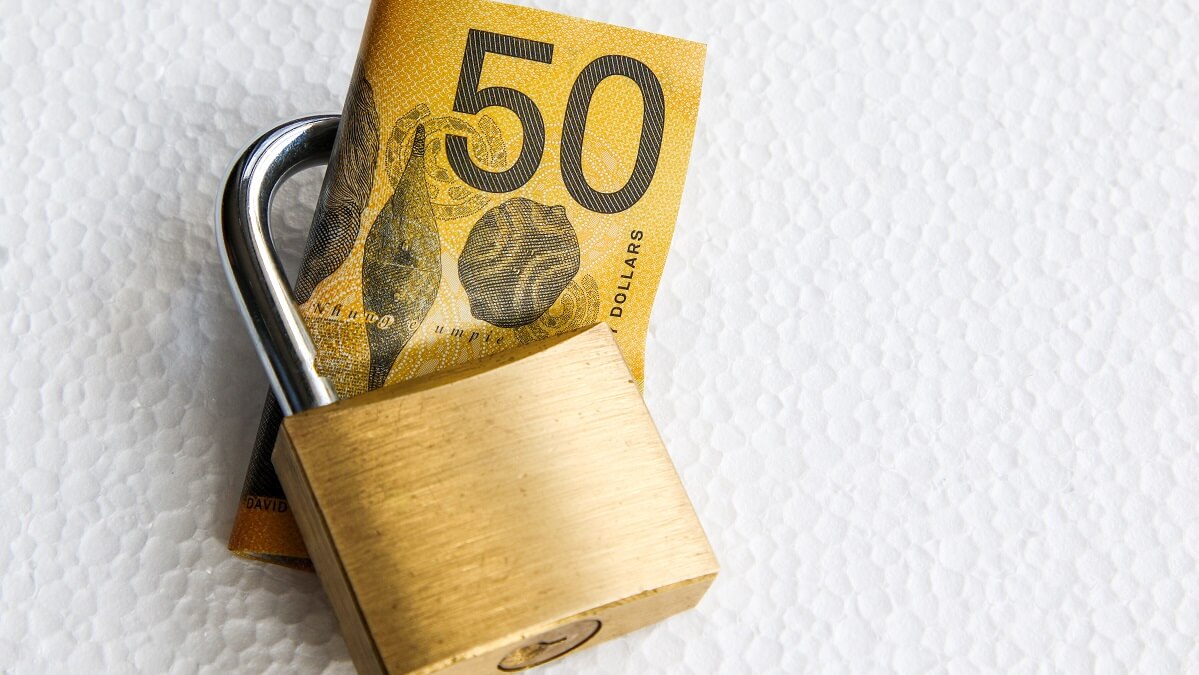The federal Treasurer has proposed changes to the superannuation system that would stop people making early withdrawals.
During the pandemic, Australians collectively withdrew around $36 billion of their super. Many would argue it was necessary to survive financial difficulties during unprecedented economic times.
But it’s also true that the withdrawals mean many are likely to live a much more frugal retirement.
Treasurer Jim Chalmers says Australia must avoid a repeat of that raid on super.
He says the previous government’s policy of allowing Australians to withdraw $10,000 from their super during the pandemic was “disastrous” and put the integrity of the superannuation system at risk.
“This made us vulnerable to wrong turns and wrong decisions,” Dr Chalmers said.
“It moved us further away from where we need to be – better living standards in retirement for as many Australians as possible.”
He says it’s time for Australia to enact laws that will preserve people’s retirement savings and legally block the withdrawal of superannuation before retirement.
Under the reforms, Labor proposes that an objective for superannuation be legislated so all future policy decisions can be guided by it.
The proposed objective is to “preserve savings to deliver income for a dignified retirement, alongside government support, in an equitable and sustainable way.”
Dr Martin Fahy, CEO of the Association of Super Funds of Australia (ASFA), has welcomed the proposal, describing it as an “inflection point in the evolution of Australia’s world-class retirement income system”.
“Thirty years on from the introduction of the Superannuation Guarantee, this proposed objective opens the next chapter in the Australian superannuation story,” he said.
“The proposed objective places preservation, retirement income, equity, sustainability and a dignified retirement at the heart of superannuation policy while recognising the ongoing role of the Age Pension.”
But the proposal has also attracted criticism.
Independent Senator Jacqui Lambie told Sky News Australia that allowing people early access to their super during the pandemic had meant more people kept a roof over their heads.
“This is when we should be able to use our super,” she said.
“When it is in a financial emergency, or a health emergency, you should be able to tap into your own super to help you through that.”
Is legislation to restrict early access to super a good idea? Or should people be able to access their money in an emergency? Let us know what you think in the comments section below.


the pre-COVID rules regarding access to super permitted withdrawals for financial emergency and there is no suggestion that will change. The intent is to cancel the Morrison intervention that enabled tapping super for first home buyer deposits. This is a good thing in the current market as it reduces the number of entry level buyers as well as the available funds for purchasing property. These two influences bring downward pressure on house prices and increasing house affordability for the majority of would be buyers.
I cannot remember who said it, but a comment I heard recently is so true – why should someone be forced to put their money into a Super fund, who might then build investment accommodation to be rented to the person whose money was invested with them!
The best security in retirement is to own your own home, and if that means using superannuation monies as a deposit what better way to ensure, as Jim Chalmers has said, “a dignified retirement”?
This Mickey Mouse treasurer doesn’t want us to have access to OUR money in an emergecy but he does want to use it to fund his social programs. This bloke couldn’t lie straight in bed! Only .01% of super was used from the trillions during the covid crisis.
Rather than shut down the need to withdraw funds from super when there is an obvious emergency, maybe each individual’s super could have an automatic ceiling such as a percentage as to how much can be withdrawn. To be able to withdraw a maximum amount, like $10,000 during the pandemic is now not the way to go. The pandemic was a real emergency and was handled by the then government for the betterment of all in real need and hardship.
Back to today, a standard percentage could be applied to any person wishing to withdraw from their super. The circumstances would be only for SEVERE NEEDS, like an operation. Buying a car, and having a holiday would not be regarded as SEVERE NEEDS.
I would suggest a percentage of 2% of any super account. For example, a super fund of $280,00, 2% = $5,600. A super fund of $400,000, 2% = $8,000. A percentage approach protects the super of each individual
Chalmers wants to prevent people from accessing their own money that has been compulsorily taken from us to put into a superannuation fund. This looks like a bid to place the retiree into a position where their liquid assets will reduce their eligibility to aged Pensions.
Of course the Association of Super Funds don’t want us accessing our money that is held by a super fund as they are essentially ponzi schemes reliant on the continuing contributions coming in day after day.
In overall terms, $10,000 is a piddling amount and will be barely noticed if it is there or not when a person retires and reaches for their superannuation. But in an immediate short term emergency need decades before retirement, it may well be the lifeline that keeps them safe.
Chalmers is not a “whizz kid” in any way shape or form. Under his “leader ship” we are already seeing the cost of living increasing, unemployment going up and business confidence going down. The people of Rankin, at least the 43% of the voters, who voted for Mr Chalmers will rue the day that they cast their vote his way.